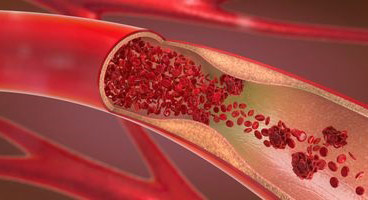BREAKING NEWS! New York Study Finds That SARS-CoV-2 Infection Triggers Pro-Atherogenic Inflammatory 1 Responses In Human Coronary Vessels!
Thailand Medical News Team Aug 17, 2023 1 year, 8 months, 3 days, 16 hours, 9 minutes ago
COVID-19 News: The COVID-19 pandemic, caused by the novel coronavirus SARS-CoV-2, has brought to light a multitude of unexpected health impacts beyond respiratory symptoms. Among these, cardiovascular complications have emerged as a significant concern, with patients experiencing heightened risks of myocardial infarction (MI), acute coronary syndrome, and stroke even up to a year after recovering from SARS-CoV-2 infection as covered in many past studies, case reports and
COVID-19 News coverages.

While the systemic inflammatory response triggered by the virus is believed to contribute to these cardiovascular risks, a groundbreaking study conducted by researchers from New York University School of Medicine, Icahn School of Medicine at Mount Sinai, and NYU Winthrop Hospital has uncovered a direct link between SARS-CoV-2 infection and pro-atherogenic inflammatory responses within human coronary vessels.
The study aimed to investigate whether SARS-CoV-2 infiltrates the coronary vasculature and atherosclerotic plaques, sparking localized inflammation that could potentially lead to acute cardiovascular events.
Through meticulous examination of autopsy samples obtained from individuals who succumbed to severe COVID-19, the study team made a groundbreaking discovery. SARS-CoV-2 viral RNA (vRNA) was detected and found to replicate within coronary atherosclerotic lesions, providing undeniable evidence of the virus's presence within the heart's blood vessels. This presence was especially pronounced in plaque macrophages, immune cells known for their role in inflammation within artery walls. Moreover, the virus exhibited a particular affinity for arterial lesions compared to surrounding perivascular fat, a preference correlated with the extent of macrophage infiltration.
The study further delved into the infection process at a cellular level, revealing that SARS-CoV-2 was more likely to enter cholesterol-loaded macrophages known as foam cells. This preference for foam cells was partially reliant on a cell surface receptor called neuropilin-1 (NRP-1). Importantly, even though viral replication in macrophages and foam cells was limited, the infection spurred a robust inflammatory response characterized by the release of interleukins IL-6 and IL-1β - crucial cytokines implicated in ischemic cardiovascular events.
In a remarkable demonstration of their findings, the study team utilized human atherosclerotic vascular explants - a model that mimics the infection process. The results mirrored what was observed in cultured macrophages, underscoring the immune response's consistency across different contexts. These findings collectively established a significant connection between SARS-CoV-2 infection, macrophage involvement, and pro-atherogenic cytokine secretion within atherosclerotic lesions.
The implications of this study extend beyond its immediate findings. The research aligns with clinical observations that COVID-19 patients face heightened cardiovascular risks, even in cases where coronary occlusions are not readily detected. The expression patterns of SARS-CoV-2 receptors and co-factors in human vasculature further suggested that coronary arteries might be uniquely
susceptible to viral infection, potentially explaining the elevated cardiovascular risks in COVID-19 patients.
Notably, the study acknowledged certain limitations. The cohort under investigation consisted of older individuals with pre-existing atherosclerosis and various medical conditions, which means that the findings may not be universally applicable to younger, healthier individuals. The study was also limited to the early phases of the pandemic, focusing on viral strains circulating in New York City between May 2020 and May 2021.
In conclusion, this New York-based study has shed light on a previously unrecognized facet of SARS-CoV-2's impact -the virus's ability to infiltrate and infect coronary vessels, particularly macrophages within atherosclerotic lesions. The resulting inflammatory response and cytokine release offer a mechanistic explanation for the heightened cardiovascular risks seen in COVID-19 patients.
As the world continues to grapple with the ongoing pandemic, this research not only advances our understanding of the virus's effects but also underscores the importance of considering cardiovascular health in the context of COVID-19 management and treatment. Further research will be essential to fully elucidate the intricacies of this relationship and explore potential therapeutic interventions to mitigate the cardiovascular risks associated with SARS-CoV-2 infection.
The study findings were published on a preprint server and are currently being peer reviewed.
https://www.biorxiv.org/content/10.1101/2023.08.14.553245v1
For the latest
COVID-19 News, keep on logging to Thailand Medical News.
